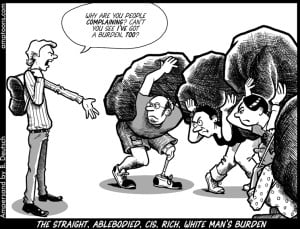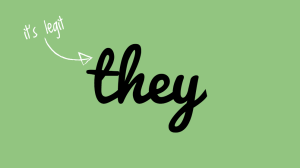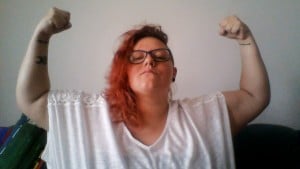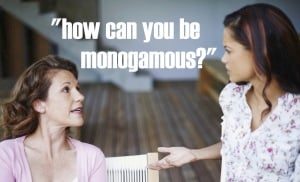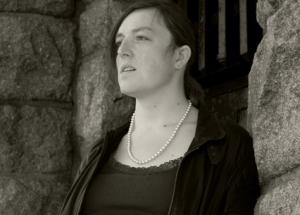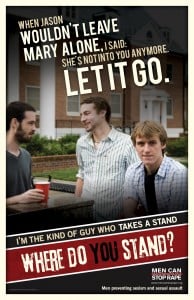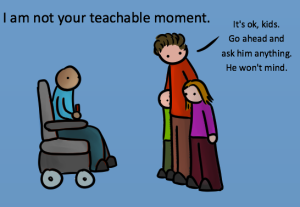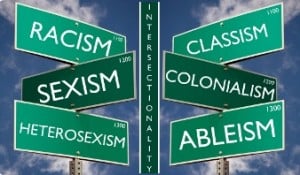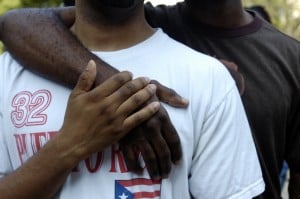
Source: My Majic DC
About a week ago, an acquaintance invited me to a party with this preface: “It’s just for women and we will have a male stripper, but you can come since you’re gay.”
I politely (and shockingly) declined.
It was clear to me that this person, like many others, is confused about a definition of maleness that does not include sex with women.
We are being seduced into thinking that as a result of constant assault by social media and images, we have moved beyond thinking that is homophobic, racist, and just plain ignorant.
Patriarchy and all of its resident offshoots and tools of oppression lull us into not thinking, which often leads us into not acting.
In a culture where any and every image or desire is just a click away, it is hard to critically engage people because of the assumption that everyone has “made it.”
Most people design their lives to ensure that none of their decisions are questioned or challenged.
bell hooks constantly reminds us that in American culture, we are taught and trained to see in parts. And our devotion to myopic and inappropriate ways of seeing black gay men is disturbing.
Many folks get mad when you can claim more than one identity. As a result of most people’s intellectual laziness, the message gets sent: Stay in your lane and let me define you.
This is a problem when trying to make friendships and relationships work across boundaries.
Boundary crossing has become very chic.
Changing our thinking or allowing ourselves to be fundamentally changed as a direct result of crossing boundaries, on the other hand, is not chic.
While there are many folks who are seduced and cajoled into worshiping the black male body, there are few who can do so without moving into fetishizing, sexualizing, and having the desire to control and contain it.
My banker, who is Persian, refers to himself as Mike. When I attempted to pronounce the birth name given to him by his parents, we began to discuss the decision to refer to himself as Mike.
It was explained to me that as a huge Michael Jordan fan, he was teased as a young boy and this was a way to have both protection (by taking on another identity) and idol worship.
When we are not “seen” and revered and honored for being men, all sorts of weird problems arise.
My sweet six-year-old grandson, much like my sweet sixteen-year-old nephew are beginning to feel the pangs and undeserved scrutiny that gets handed to all black males simply because of their skin color.
These gentle souls began being referred to as a problem almost from birth.
Between the culture’s fear, demonization, and lust for black male bodies, there is little space to create healthy and self-esteem-increasing interactions and patterns.
I am often saddened (and sometimes weep) when I witness the change in our young boys that have nothing to do with who they are, but seem required if they want to survive.
When I hear the nonsense of racism regarding scary black men and then get immediately assured that I am not one of “them,” I often wonder when my time is coming.
I wonder about not being one of them when my opinion is solicited and then dismissed.
As black men, it is assumed that our thinking is muddled, insignificant, or flawed at worst and limited and shallow at best. We are not expected or encouraged to think about anything too deeply.
Keeping things “light” prevents the possibility of mayhem. Truly understanding and challenging the forces that seek to deny our humanity and limit our self-actualization would require a radical reworking of the social order.
This is not a problem and doesn’t scare me nor should frighten any thinking, rational, effectively decolonized person.
A bit of anger and upset or outrage over a system that fucks you over and has designated you as the target would actually be something wonderful.
Designating men who are black and happen to be gay as sub-men is convenient. In many ways, it allows for us (those of us obsessed with safety) to feel safe.
It also places the desire and impetus to change on the shoulders of those whose identity we cannot be bothered with seriously “seeing.”
bell hooks in quoting Sojourna Truth (who bore her breasts to prove she was indeed female) reminds that to revere, honor, and respect the black male body is to hold it to the same other worldly status of that as white females.
When people comment that my gayness allows me a pass to all women spaces (I firmly, by the way, believe that there needs to be all women spaces as well as all men spaces), I cringe at the insensitivity, thoughtlessness, and collusion with dominator culture that this supports.
It is no different when my blackness is negotiated or given an okay by folks who feel that one less dark person will harm them even as they seek to emulate my stance in the world and how I navigate things.
However, the most troubling part of this ordeal is resisting the perceived rewards that are offered.
There is the belief and some truth to the concept that when you “stay in your line”and play the good d*rky or f*gg*t, you will somehow escape persecution. And if you’re really “good,” you might actually be invited into mainstream, racist-free and heterosexist communities.
About a year ago, I reviewed a wonderful book about kinky relationships (Partners in Power). This book was eye-opening for me in that it highlighted the extent of all relationships.
The negotiation of power occurs in all human interaction. Sometimes it’s shared. Sometimes the amount granted and distributed is silently agreed upon. When someone assigns you a role based on a limited and privileged viewpoint, this can cause serious problems.
In my review, I stated the following:
Partners in Power is a critical examination of what is required to be a part of a community that is still ill-represented, misunderstood, and in no way viewed as an organism that has figured out how to sustain itself by consistently adapting itself to new “players” who are interested in experimenting, testing all types of personal limits, and being honest about the results that get discovered once the nuts are empty.
Relationships based in play and trust can allow for all sorts of mistakes and negotiations. Assumptions designed to make the assumer feel okay with another’s form of love and sexual expression limit honesty and prevent full psychological visibility.
A better approach might include silence and/or giving up the belief that one’s identity is given validity once it has been heterosexually sanctioned.
Black, gay, and recently married are just a few of my identities.
Identities are constantly changing and are largely self-created.
Allies who insist we live fully understand, respect, and encourage this belief.
[do_widget id=”text-101″]
Want to discuss this further? Visit our online forum and start a post!
Anthony Carter combines his love of theatre, writing, storytelling, and black queer feminist theory to create projects that inspire all to greatness, including having been a semifinalist in the Strawberry One Act Festival 2007 with his play Breakfast for Dinner. His book Unfettered Mind: The Importance of Black Male Mental Health, released in 2012, offers several winning strategies for remaining mentally healthy and emotionally resilient in a rapidly changing world. Mr. Carter’s second book, Strong Stuff: Tips on Surviving Unemployment, offers insight on maintaining self esteem and personal friendships while one searches for work. Based on personal experiences (2.5 years of unemployment and some homelessness), this latest book is full of exercises and quick easy to read and apply tips for thriving despite being jobless. Anthony Carter and his husband are joyfully co-raising nine grandchildren (three of whom live with him) while relentlessly devising techniques for the world’s evolution. You can visit him online here.
Search our 3000+ articles!
Read our articles about:
Our online racial justice training
Used by hundreds of universities, non-profits, and businesses.
Click to learn more






